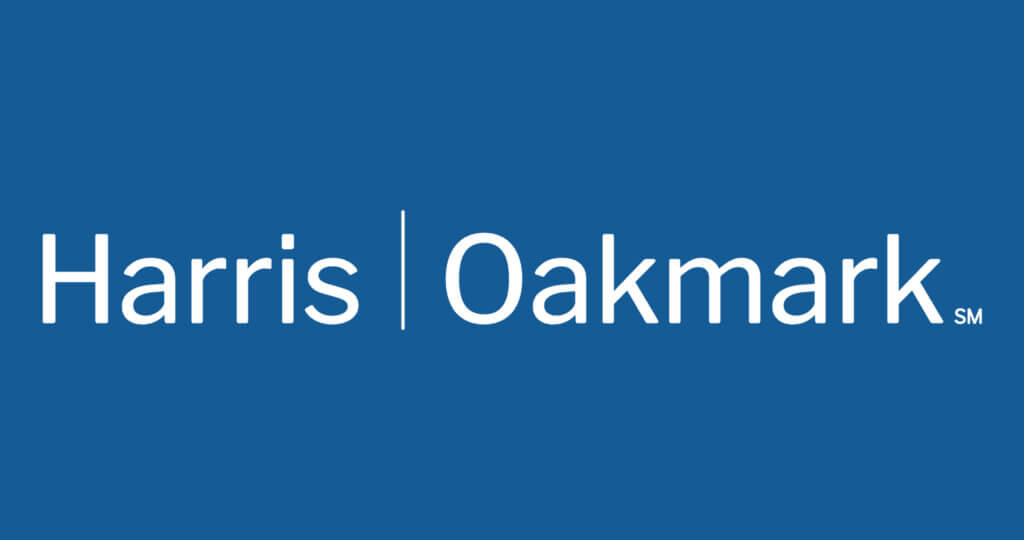Oakmark International Small Cap Fund - Investor Class
Average Annual Total Returns 09/30/12
Since Inception 11/01/95 9.57%
10-year 12.34%
5-year -1.87%
1-year 13.15%
3-month 3.65%
Gross Expense Ratio as of 09/30/11 was 1.38%
Past performance is no guarantee of future results. The performance data quoted represents past performance. Current performance may be lower or higher than the performance data quoted. The investment return and principal value vary so that an investor’s shares when redeemed may be worth more or less than the original cost. The performance of the Funds does not reflect the 2% redemption fee imposed on shares redeemed within 90 days of purchase. To obtain the most recent month-end performance data, view it here.
The Oakmark International Small Cap Fund returned 4% for the quarter ended September 30, 2012, compared to 9% for the MSCI World ex U.S. Small Cap Index. For the fiscal year ended September 30, the Fund returned 13.2%, outperforming the MSCI World ex U.S. Small Cap Index, which returned 12.8%.
The top-performing stock for the one-year period was German-based Duerr AG. Duerr is the world’s largest paint-shop designer for the automotive industry. Duerr designs and constructs fully automatic paint finishing plants, final assembly systems, and air purifiers in Europe, North and South America, and Asia. The company has experienced a surge in demand due to investment in emerging markets (59% of incoming orders in the past 12 months). As a result, Duerr has raised earnings guidance multiple times this year, and margins have improved in all of the company’s divisions. We recently met with company management, and we believe Duerr will continue to benefit from this trend. We also believe that they will be able to be more selective in the orders they take going forward, which should further boost profitability.
For the recent quarter, Altran Technologies was the Fund’s top-performing stock. Headquartered in France, Altran is the largest engineering outsourcing firm in Europe. Its main client industries are aerospace, defense and telecommunications. We first purchased the stock in January 2012 just after a new management team had taken over. Since this time, the management team has worked to turn the company around by selling non-core assets, reducing indirect costs and improving free cash flow conversion. We see potential for additional initiatives and improved profitability. Altran is looking at several small acquisitions to strengthen its international operations, which we believe would further enhance value.
The largest detractor from performance for the year was Japanese temporary staffing firm Pasona Group. Pasona has struggled with large profit declines due largely to a sluggish Japanese temporary staffing market. We believe the outplacement business may improve as major manufacturers in Japan focus on restructuring efforts. However, the road ahead for Pasona will be challenging.
U.K. sporting goods retailer JJB Sports was a detractor from performance for both one-year and the past quarter’s returns. In the spring, things looked promising for JJB, as they gained Dick’s Sporting Goods as a strategic partner. Dick’s brought to the table strong relationships with two leading sporting goods suppliers, Nike and Adidas, and it also supplied additional funds to help the JJB management team with in-store restructurings. The strategic partnership appeared to come at a key time for JJB, with European football and the summer Olympics coming to London. However, JJB’s two large competitors aggressively priced these key sporting events, and JJB sales continued to struggle. We divested of our holding of JJB Sports during the quarter. Since this time JJB Sports has put itself up for sale.
This quarter we added Panalpina Welttransport, the world’s fourth largest freight forwarder and a name we’ve owned in the past. Based in Switzerland, Panalpina provides intercontinental air and ocean freight forwarding and supply chain management services through about 500 branches in about 80 countries. Panalpina has recently brought in a number of managers from outside the company with industry experience, which we believe will be the catalyst for Panalpina to report profitability levels more in line with its peers in a three- to four-year time horizon. In addition to JJB Sports, we sold our holdings in Bunzl and Lawson during the quarter.
Geographically, we ended the quarter with our European holdings comprising 56% of the portfolio and with Pacific Rim holdings decreasing slightly to 40%.
Our hedging philosophy and practice has remained consistent, and because we continue to believe that the U.S. dollar remains weak against some currencies, we maintained hedge positions on five of the Fund’s currency exposures. At the recent quarter end, we have hedged a portion of the Fund’s Australian dollar, Norwegian krone, Swiss franc, Japanese yen and Swedish krona exposures.
We thank you for your continued confidence and support.
As of 9/30/12, Duerr AG represented 1.0%, Altran Technologies SA 1.9%, Pasona Group, Inc. 1.4%, JJB Sports PLC 0%, Dicks Sporting Goods, Inc. 0%, Nike, Inc. 0%, Adidas AG 0%, Panalpina Welttransport Holding AG 1.1%, Bunzl PLC 0%, and Lawson, Inc. 0% of the Oakmark International Small Cap Fund’s total net assets. Portfolio holdings are subject to change without notice and are not intended as recommendations of individual stocks.
The MSCI World ex U.S. Small Cap Index (Net) is a free float-adjusted market capitalization index that is designed to measure global developed market equity performance, excluding the U.S. The MSCI Small Cap Indices target 40% of the eligible Small Cap universe within each industry group, within each country. MSCI defines the Small Cap universe as all listed securities that have a market capitalization in the range of USD200-1,500 million. This benchmark calculates reinvested dividends net of withholding taxes using Luxembourg tax rates. This index is unmanaged and investors cannot invest directly in this index.
The stocks of smaller companies often involve more risk than the stocks of larger companies. Stocks of small companies tend to be more volatile and have a smaller public market than stocks of larger companies. Small companies may have a shorter history of operations than larger companies, may not have as great an ability to raise additional capital and may have a less diversified product line, making them more susceptible to market pressure.
Investing in foreign securities presents risks that in some ways may be greater than U.S. investments. Those risks include: currency fluctuation; different regulation, accounting standards, trading practices and levels of available information; generally higher transaction costs; and political risks.The discussion of the Fund’s investments and investment strategy (including current investment themes, the portfolio managers’ research and investment process, and portfolio characteristics) represents the Fund’s investments and the views of the portfolio managers and Harris Associates L.P., the Fund’s investment adviser, at the time of this letter, and are subject to change without notice.







